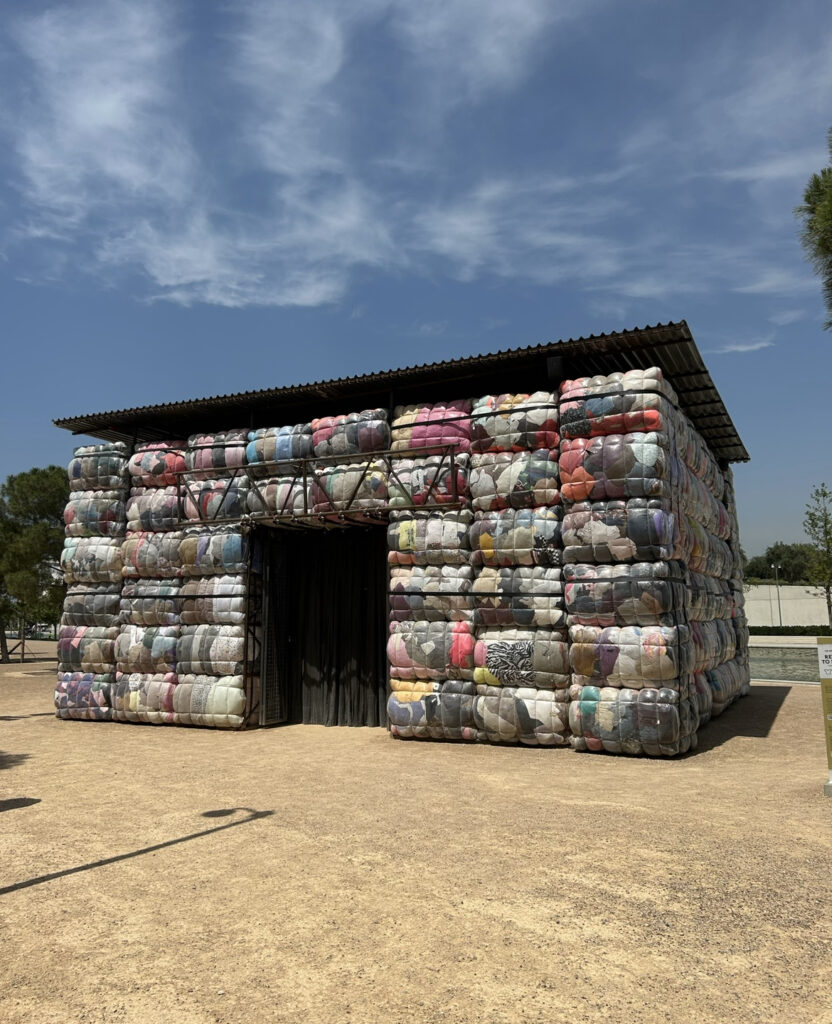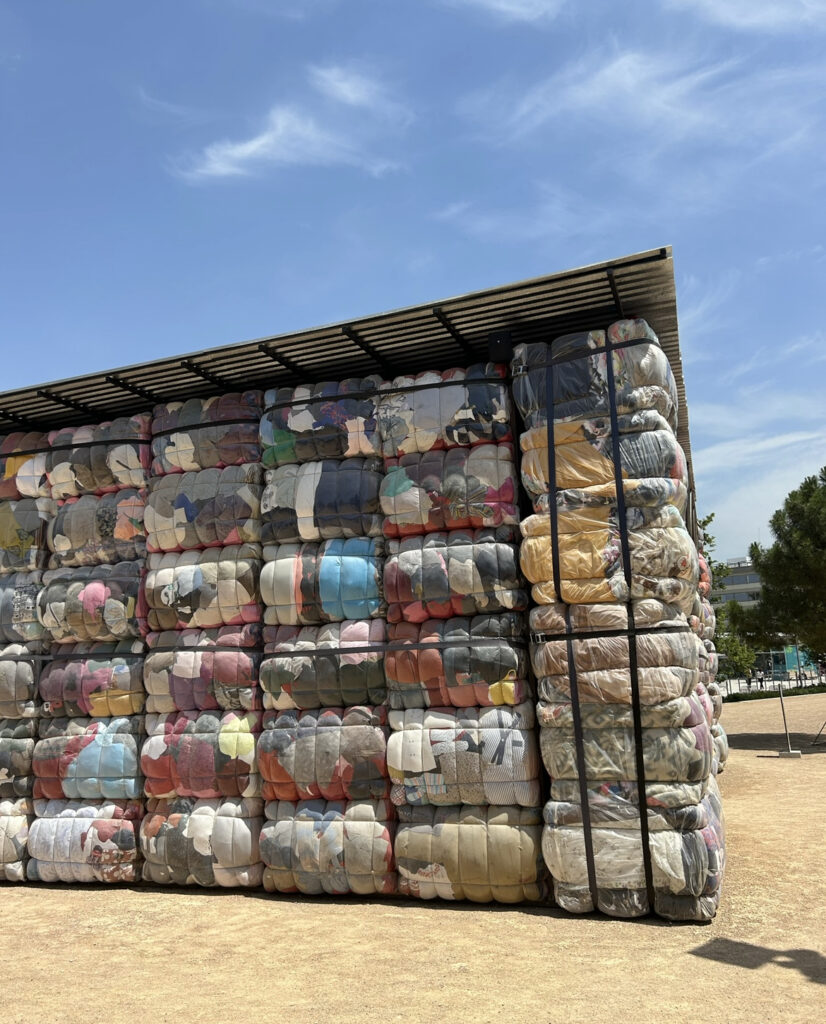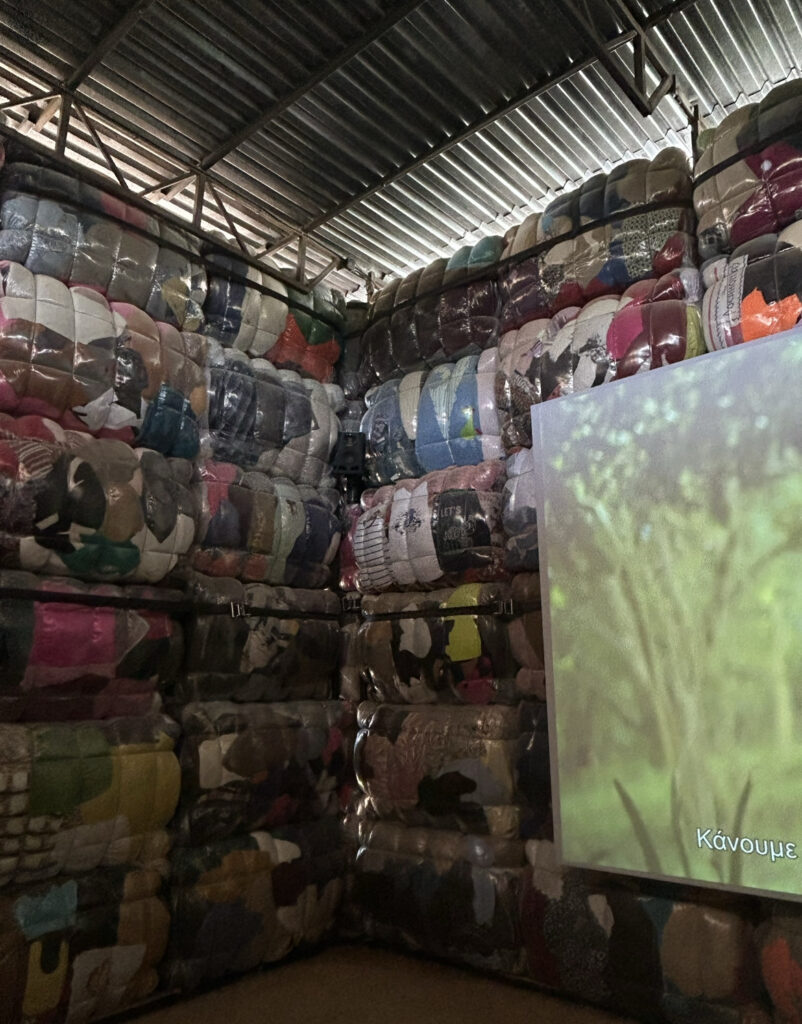Return to Sender by the NEST Collective
Image details
NEST Collective Return to Sender 2023 Stavros Niarchos Foundation Cultural Center (SNFCC)
Return To Sender was created by the NEST Collective, who are based in Nairobi, Kenya. Their practice has a focus on African, contemporary, and post-colonial experiences. This installation focuses on the issue of the uncontrolled clothing consumption from Europe and North America, which directly affects Kenyan locals in a really devastating way.
Strict regulations direct the movement of these textiles to the Global South. An enormous amount of textile waste comes to Africa, creating a huge environmental crisis of an overabundance of clothing that cannot be utilized.
“Up to 40 percent of each bale of imported second-hand clothes is completely unusable and thus taken straight to landfills”.
Return to Sender consists of bales of barely used clothing, and this version of the installation contains clothing only from Athens. The NEST collective physically returns these items back to their country of origin, and places it in the capital city in a central location place where it is impossible to ignore. It flips the idea of discardation on its head.
Once you enter this structure, there is a documentary about the effects of the overconsumption of clothing, and the ways in which this takes a toll on Kenya, raising awareness about this issue and inspiring visitors to think about their consumption levels. It is a call to action against fast fashion, and instead enchorages deeper thinking about where your waste ends up, and who this really impacts. It also calls out corporations and companies that produce goods at such a high and uneccesary rate, and the political systems in place that allow this waste to occur.
“This work was selected to ‘raise awareness of the negative consequences of high-street or fast fashion – clothes bought, worn for a short while, and discarded quickly – and to raise awareness of the issue specifically in Greece. The environmental footprint of the fashion industry is an issue that needs to be talked about more, and consumers need to be made aware that cheap clothes constitute not only an environmental problem, but also a political one as the wealthy West continues to dump its waste in the Global South and poorer countries” (Katerina Gregos, Artistic Director of EMΣΤ).


